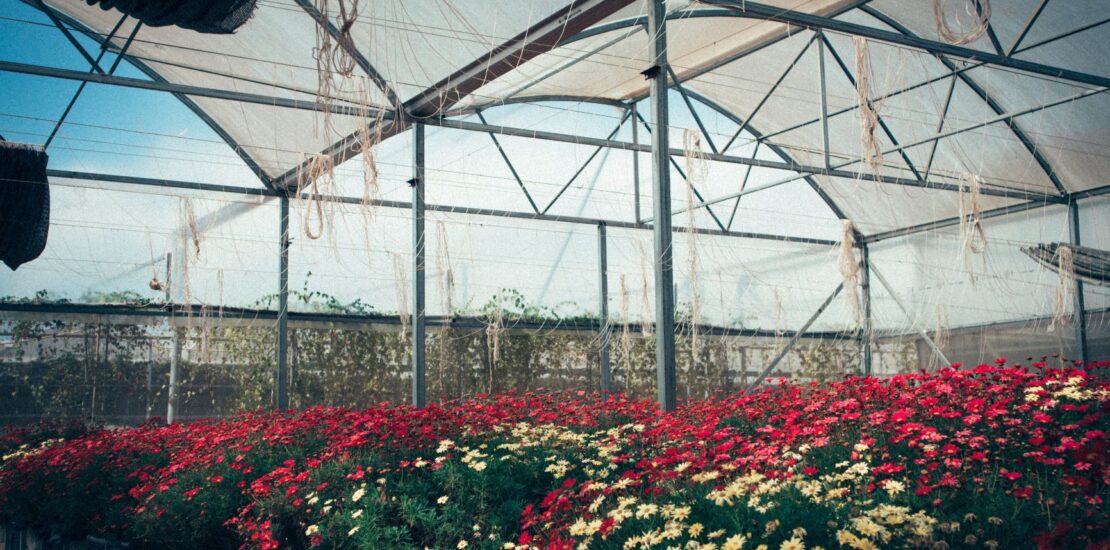Focus on the global flower industry
- 24/04/2020
- Posted by: Gaetan Dermien
- Category: News

PROVIDED BY UNION FLEURS – INTERNATIONAL FLOWER TRADE ASSOCIATION (WWW.UNIONFLEURS.ORG)
European market
Since mid-April, activity is gradually restarting on the European market with garden centres having opened again in some EU countries (Belgium, Austria, the whole of Germany). It provides some breathing space for the sector, but some major markets are still mostly locked down (e.g. France, United Kingdom, Switzerland). The overall market activity (both volumes and prices) in the EU is in any case nowhere close to what it should be at this time of year, and it is anticipated that it will continue be disrupted for the coming weeks and months. Meanwhile, many flower shops will have gone bankrupt, and wholesalers as well. And the issue of customers’ credit will remain for the wholesalers in this context – customer florists not having paid their debts and now having gone bankrupt. So the ‘domino effect’ is expected to continue disrupting the European market for a long period before it can recover. As a large share of flower and live plant products also go to events, food service and hotels, hospitality, weddings and funerals, and as strict social distancing measures are due to be maintained for several months with most social and cultural events banned for several months across Europe, all sales channels will remain deeply affected with a significant impact on the overall EU market.
Trade transactions at the Dutch auctions have been significantly reduced since the collapse of the market mid-March and will continue to be much lower than they should be under normal market conditions at this time of the year and for the weeks and months to come. Royal FloraHolland has reported a reduction of turnover of 85% in the week of 13 to 20 March when the market collapsed. Since then, the loss in turnover has gradually improved step by step and activity at the auctions is now estimated at 30% less than what it should be at this time of the year. This is largely a result of the voluntary measures taken since mid-March to maintain price levels as far as possible by limiting supply and withdrawing products from the market. Royal FloraHolland has announced this week that these measures will now start being phased out from 29 April onwards. Today, price levels are nowhere close to where they should be, even if larger volumes of flowers and plants are now sold at the auctions. This is expected to continue for the coming weeks and months.
International news
The international flower industry is now intensively preparing for Mother’s day on 10 May in most destination markets (US, most of mainland Europe except for France on 7 June), hoping that the international market, airfreight and logistics connections will be sufficiently restored by then.
Asocolflores, the Association of Colombian Flower Exporters, has announced this week that it has activated its ‘Petal Plan’ for Mother’s Day (see Floral Daily), a security and coordination mechanism involving all relevant Colombian authorities to systematise processes along the supply chain as much as possible and reduce risks derived from COVID-19.
The Kenyan flower industry is still faced with a number of difficulties for airfreight linkage to destination markets as North–South-bound connections are still greatly insufficient. Efforts by the Kenya Flower Council and other industry stakeholders are slowly starting to pay off. In a statement released on 20 April, the Dutch Embassy in Nairobi announced: “Starting Tuesday, April 21, and Sunday, April 26, Air France KLM Martinair, Cargo will operate two weekly cargo flights bringing 45–50 tons of cargo from Nairobi to Amsterdam. For this purpose, KLM Boeing 777-300 passenger aircraft will be used with ample belly capacity. This comes in addition to the existing full freighter flights Air France KLM Martinair is regularly operating.” The exports will be dominated by cut flowers and other perishable products, including vegetables and fruits from Kenya to the Netherlands.
EC package of exceptional measures
On 22 April, the European Commission announced it was proposing a package of exceptional measures to support the agri-food sector. For the first time ever, measures under Article 222 of the CMO Regulation (Common Market Organisation) are being put forward to support the flower and plant sector. The proposed measures provide exceptional derogation measures from EU competition rules for the flower and live plants sector, and the authorisation to adopt self-organisational tools for market stabilisation for 6 months (e.g. market withdrawal, free distribution of products, joint promotional measures). The Commission aims to have these measures adopted by the end of April. Beforehand, Member States are being consulted and will vote on these measures.
This is an exceptional recognition by the EU Commission of the serious disruptions that have taken place on the market since mid-March. Union Fleurs, together with all other organisations of the sector, welcomes the positive political signal given by the EU Commission with this announcement. However, it is anticipated that these proposed measures will not bring any significant and tangible relief to the urgent needs of the sector, due to the specific characteristics of the sector which differ from other agricultural products. What is needed is a more ambitious plan at EU level with actual financial support to the sector to compensate the losses growers and operators have faced since the start of the crisis and guarantee liquidity to their businesses. Sector organisations will therefore continue advocating for a more direct and financially significant support by the EU under Art. 221 of the CMO and/or any other avenues that could be possible outside the CMO Regulation.
OTHER NEWS
In the Netherlands, an online initiative Kopen bij de kweker! (Buy from the grower!) is serving 1,000 visitors per day just 2 weeks after launching (Flora News). The website shows consumers a map with growers in the area where they can buy flowers and plants. As the site points out, as growers can’t export, consumers can visit the points of sale on the website to avoid millions of euros worth of flowers and plants being thrown away every day. New growers are registering on the site on a daily basis. Since last weekend, Kopen bij de kweker has also been on social media, and already has a reach of 20,000.
Royal FloraHolland provides a weekly country update for the corona crisis. It reports on the retail situation in various European countries (florists and garden centres), and on logistics affecting exporters, particularly Kenya. Royal FloraHolland also has a live blog with market updates.



